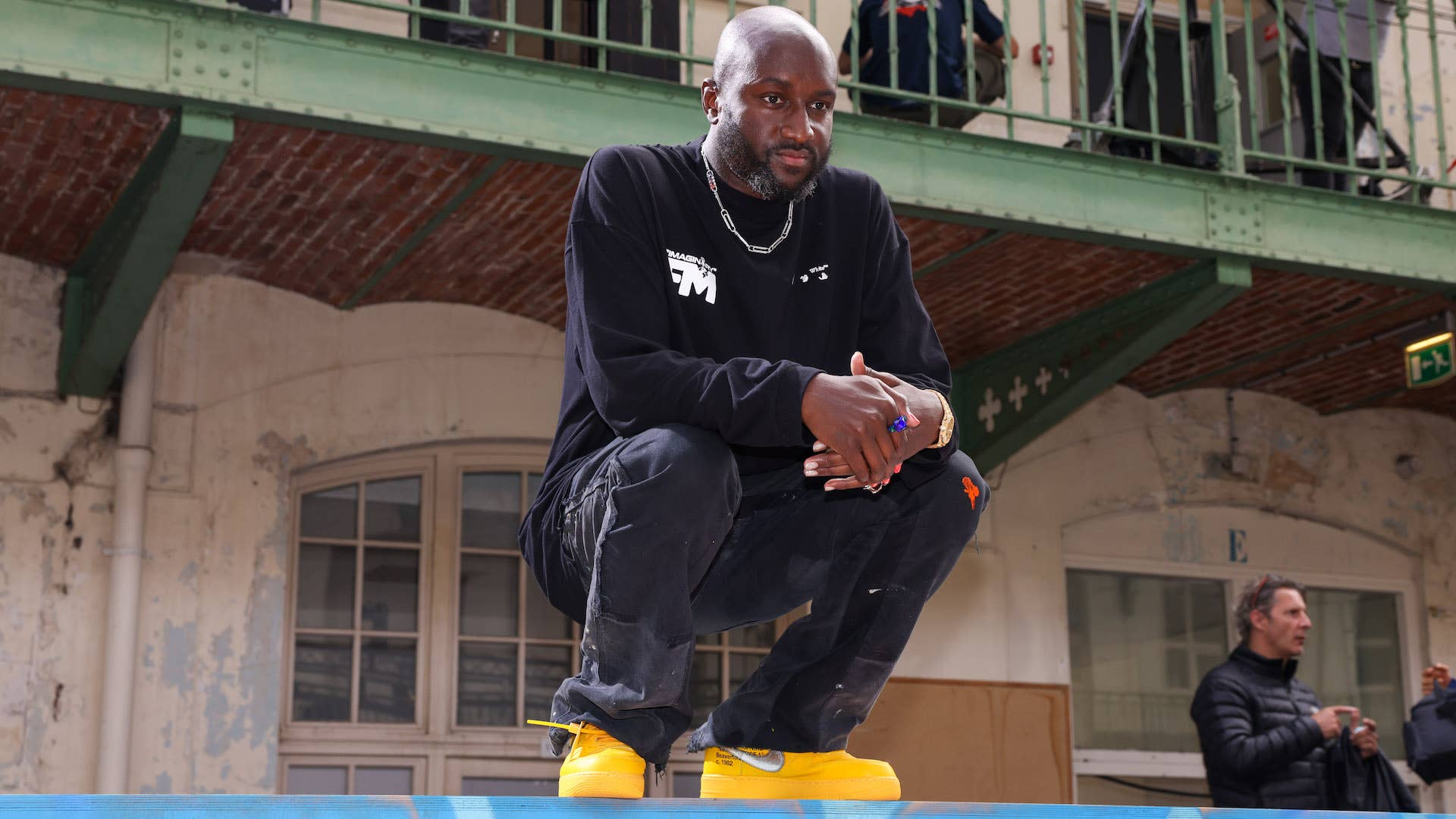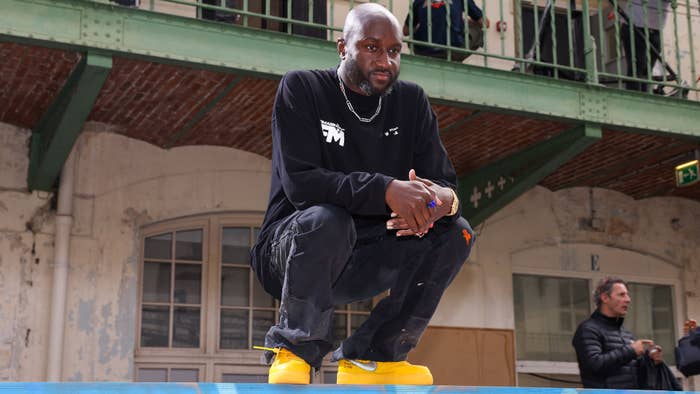
On July 20, LVMH, which owns Louis Vuitton, Dior, and many more luxury brands, unveiled that it acquired a majority stake in Virgil Abloh’s Off-White. The deal gives LVMH 60 percent interest in the Off-White trademark while Abloh will retain a 40 percent interest and continue as the brand’s creative director.
Prior to this, Abloh owned owned 100 percent of the Off-White trademark, and had a licensing partnership with the New Guards Group, which essentially means they paid Abloh for the rights to rent out his trademark across apparel, furniture, and fragrance, and they took on manufacturing and distributing the product to different retailers.
Abloh owned his masters and he could choose what he wanted to do with his trademark, hence being able to sell a piece of it to LVMH. The New Guards Group will continue to operate the brand, but LVMH now has an indirect stake in the company.
It’s a monumental moment for both parties. Abloh, the artistic director of Louis Vuitton Men’s, says it gives him a “seat at the table,” and more influence over the luxury conglomerate. For LVMH, it marks a major investment in, not just streetwear, but a Black designer who has championed diversity and inclusion within the luxury space.
There’s a tweet going around stating that because LVMH acquired 60 percent of the Off-White LLC/trademark, that means they have a stake in all of his brand collaborations, including his DJ deals or showings at art galleries. This is innacurate.
But what exactly does this deal mean? We spoke to professor Susan Scafidi, the founder and president of the Fashion Law Institute at Fordham University, about how the value of Off-White’s trademark will change, how it differs from previous acquisitions from designers like Marc Jacobs, the future of Off-White, and how he protected his biggest asset: his name.
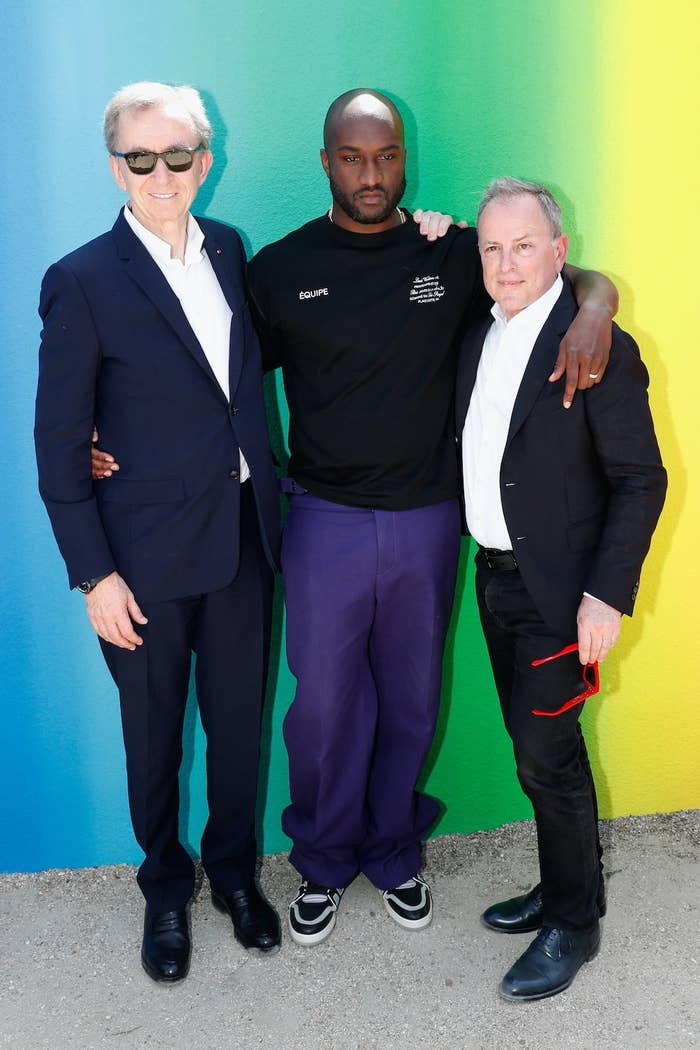
How has the value of Virgil Abloh’s Off-White trademark changed now that Louis Vuitton owns 60 percent of it?
It means that Virgil has less control over it but the value in financial terms is only going up. So the nice thing about Virgil is that he thought way ahead on the trademark. It’s not his name, but a color and a concept. It’s his design theory embodied in a name. So if he ever did walk away from it, he can start over fresh. So it was a very wise choice. It doesn’t mean the trademark is any less powerful, but it does mean it’s slightly less personal, which makes a difference.
Why is it slightly less personal? Just because LVMH owns 60 percent of it now?
Simply because it’s not his own personal name. If [he] were to walk away from Off-White tomorrow, and I assume he was contractually obligated not to do so, but if he were, he could still walk away as Virgil Abloh and start a company in his own name or in some other name. Now he probably has a period of a non-compete before he could do that. But again, he has put his own creative spirit into it, but he hasn’t made his name his trademark, which is so smart.
That’s interesting. I never really thought of that, especially when thinking of Donna Karan and Marc Jacobs. It’s a completely different situation for them I guess.
Exactly. Donna no longer has any control of what things with her name on it look like. Even though the owners of her name currently are not using it in a signature collection, they’re using DKNY, she can’t pick it up again and design anything as Donna Karan. Of course, she’s gone on to do other things like Urban Zen which has done very well. But it’s got to be a little strange to see your name on something that you might not approve of and it certainly has nothing directly to do with you. So it feels like Virgil planned an end game before even putting the first label on his products.
Recently I saw a tweet on Twitter that said ‘LVMH wants a piece of everything Virgil touches.’ We’ve learned this is inaccurate. But what do you think about this type of arrangement. Is it possible?
Since the deal is private, and since the kind of regulatory approval that the press release is most likely referencing doesn’t involve public filing of documents, we can’t verify the content of that tweet as a legal matter. The value of the acquisition is in the Off-White trademarks, including potential future collabs using those marks. Since Virgil could presumably offer other kinds of services, like DJing, directly under his own name or by forming another entity, they’re not necessarily part of the deal—though his employment contract with LVMH is likely to include a provision prohibiting direct competition. In other words, he most likely couldn’t offer design services to an LVMH competitor at the same time he’s designing for LV. Again, however, the terms of his employment are not public.
What’s clear is that, however much business Virgil has done through Off-White LLC in the past or may do in the future, he’s wisely kept his own personal name just that—personal—and not turned it into a corporate asset. LVMH is acquiring majority ownership of the company that holds the Off-White brand name and other trademarks, and it has hired and promoted the man, but his name is still his own.
Going back to the tweet, as a non-legal matter, does the announcement of the deal indicate that LVMH is investing in Virgil Abloh, in the sense that the company is buying into his creative vision and wants to promote and profit from it beyond LV menswear? Absolutely.
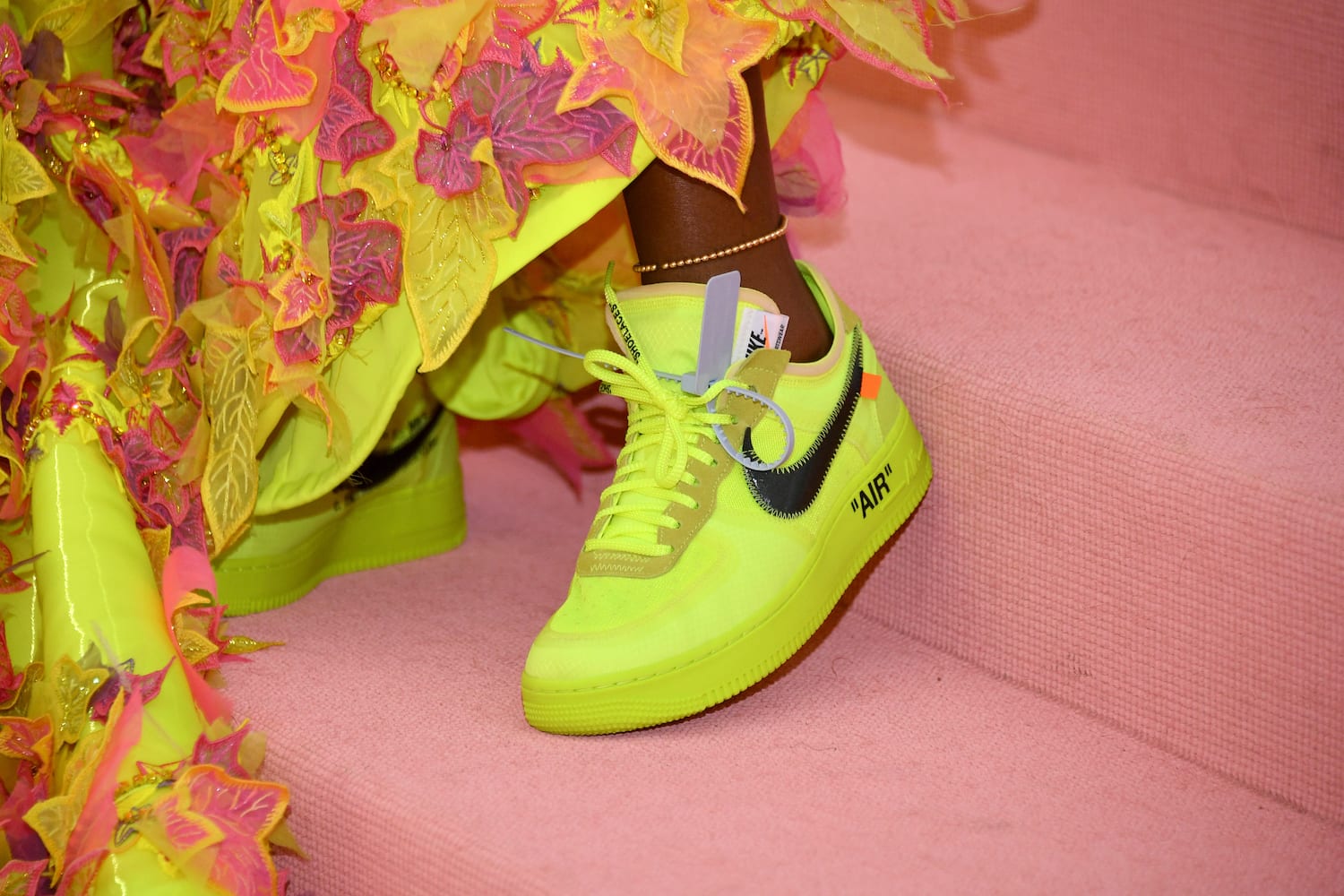
Looking back, despite their success as designers in their prime, both Marc Jacobs and Donna Karan struggled to finance their eponymous labels. I was unable to find much about Off-White’s financials, but when it comes to brands it doesn’t seem like Off-White needs the financial backing of LVMH. What do you think?
I think you’re spot on here, but there’s a difference between need and want. And certainly Marc and Donna are perfect examples of companies that had tremendous design talent, creative talent, and editorial recognition. But that doesn’t necessarily always make it easy to pay the bills, especially while you’re trying to expand at the same time. We don’t know if Off-White had those same issues. But again, coming back to the difference between need and want. They may not need the money, but having the backing of an LVMH gives you both additional economic resources and also additional strategic resources. Access to manufacturing, access to know-how and categories that you might want to enter but haven’t yet. There’s lots of things that LVMH can help Off-White do that aren’t necessarily tied to financial need.
In the initial press statement, Virgil said LVMH will “bring additional firepower and scale to accelerate [Off-White’s] momentum and evolve Off-White into a truly multi-line luxury brand.” Off-White has already opened so many stores across the world and has been bolstered as a luxury streetwear brand by their relationship with New Guards. What can LVMH bring to Off-White that no one else can?
The press release is very tantalizing in that regard. But I think if we look behind it and look at what LVMH does, even the initials of LVMH. Sure, LV is about fashion, but MH is about booze. So there’s that potential category. Even though sales within fashion have been on a roller coaster over the past 18 months, there was never a drop in the sales of alcohol. So that’s one possibility, right. Another possibility is hospitality because LVMH does a lot of work within the area of hotels. I would’ve said that before the pandemic, the new luxury was not just fashioned as products, but as experiences. Travel and that sort of thing. Also wellness and personal care products. So not just colognes, but all sorts of things that you do for yourself. Post-pandemic, we’re still not traveling to the same extent, but we’re still seeking experience and more than ever, we’re focused on our homes. And so Off-White has already made some small forays into home goods, right? You could have an Off-White throw pillow. But imagine if you could do your entire house in Off-White? And then, put those things together. The idea of experience, the idea of luxury at home, and the luxury environment. Imagine an Off-White-designed hotel with pieces that you could buy and then put it in your own home. There’s so many possibilities that reflect a new generation’s concept of luxury beyond just fashion.
And Off-White has done a cologne collaboration that’s done pretty well called “Elevator Music.” So I can imagine other collabs and other product lines following that up because they already have proof of concept. The fans of Off-White not only want to wear Off-White, they want to live, breathe and smell like Off-White. So that’s a huge advantage going forward. They already have the desire, now they just need to create the lifestyle around it. It’s not unlike the way that Vera Wang moved from wedding gowns to fashion more generally but also housewares and stationary. Objects that you buy after you get married, right? After you get married, you need your sheets and towels and you need to write your “Thank You” notes. When Tory Burch launched, she had tremendous financial backing and was able to launch multiple lines. This is what LVMH can do for, Off-White, take it from fashion to lifestyle and to a rethinking of what it means to be a modern luxury company. It’s also what Off-White can do for LVMH. It’s a young and cool brand, with a very different aesthetic and a different concept of inclusivity and diversity. And so Virgil can bring all of that to LVMH and there could even be brand partnerships within the LVMH family that could bring traditional luxury to Off-White, but a different kind of modern streetwear sensibility and coolness to other brands.
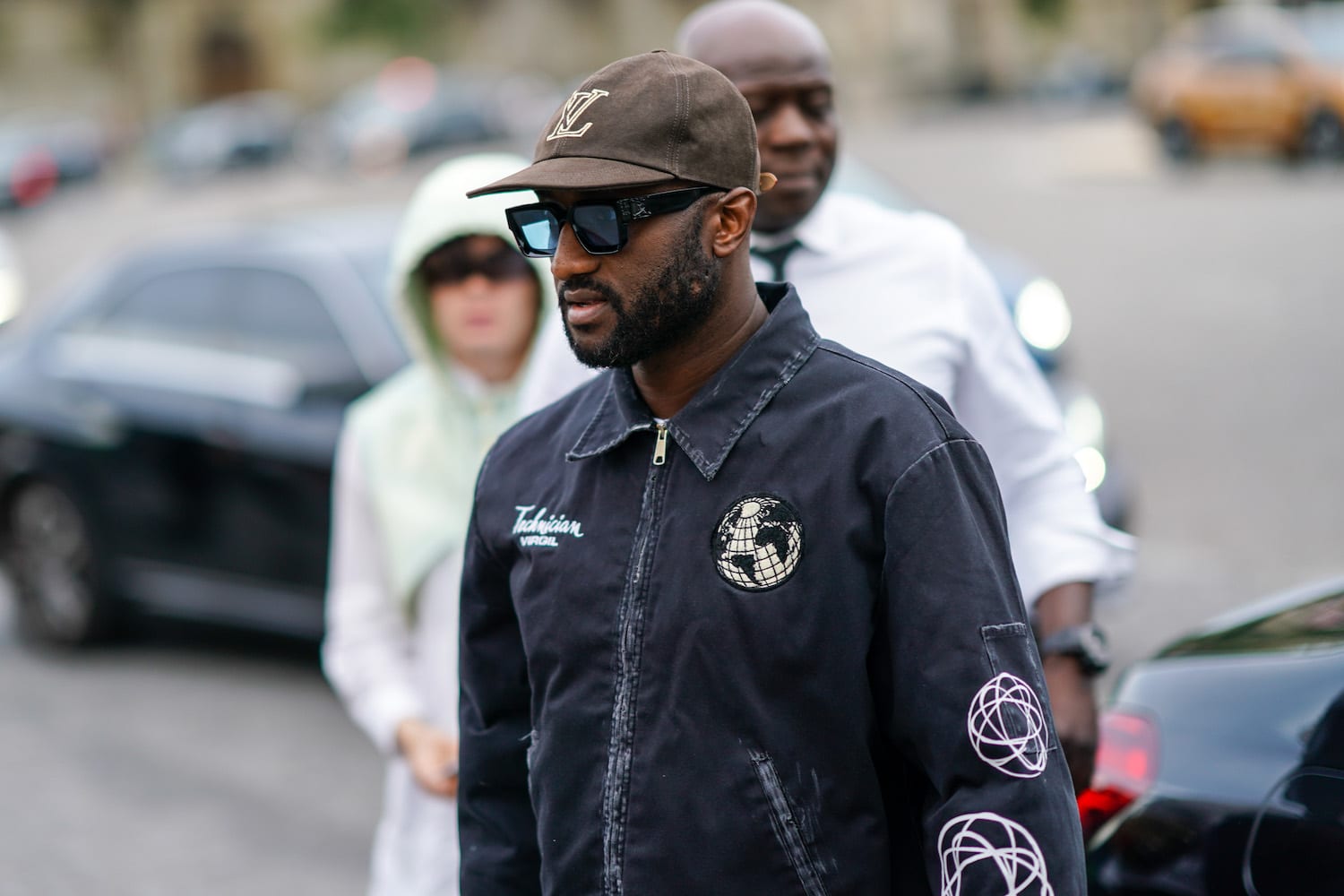
Off-White’s contract with New Guards Group cannot be terminated until 2026. For clarity, New Guards Group doesn’t own the trademark but licenses it, right? Does this current contract with Farfetch/New Guards impact or complicate anything for Off-White when it comes to this new LVMH deal?
It does mean that LVMH has to take account of the Off-White licenses to New Guards Group, which is of course owned by Farfetch. So there are maybe categories or products that LVMH can’t enter into immediately. That being said, I’m very sure that they did all of their due diligence, looked at what Off-White and New Guards Group have already done, and we’ll probably be working around that. And of course, getting a piece of that action.
I assume LVMH will be able to influence whatever direction Off-White takes in 2026 with New Guards Group?
Of course, because now that LVMH is the majority owner of Off-White, there’ll be a different kind of negotiation or conversation.
Overall, how much influence and control will LVMH have over what Off-White does now? I read that when they bought a 96 percent stake in Marc Jacobs, they butted heads with Jacobs’ business partner Robert Duffy. Could LVMH just decide to close and open Off-White stores whenever or appoint certain positions willy-nilly?
I think here, we have to think about the difference between legal and social control. So LVMH could, in theory do, more or less, whatever it wanted with it, because it is a 60 percent majority owner. On the other hand, the reason to invest in Off-White, and in Virgil Abloh, is authenticity. And if they were to start doing things that didn’t resonate with Virgil himself, or with his fans and followers, then it wouldn’t make sense for the brand. So while LVMH could legally do what it wants, potentially over some objections by Virgil, it would not be in either parties interest for them to do so.
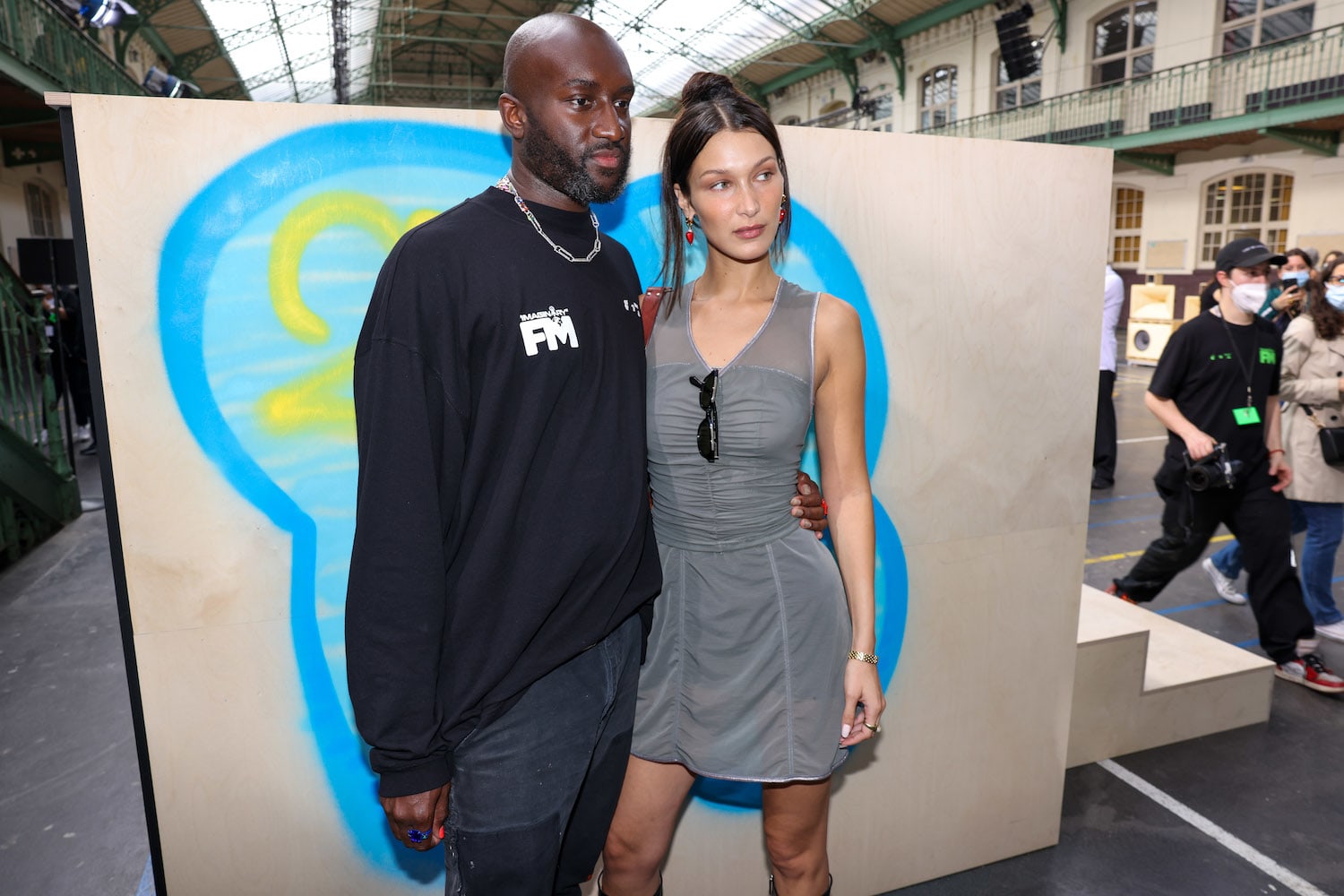
Obviously over time, fashion labels fall from grace. When that time comes, what does LVMH do with its brands to keep them afloat? They eventually sold off brands like Donna Karan. But they’ve kept other labels that have struggled, like Marc Jacobs, afloat.
LVMH always seems to play a very long game and to develop lots of personal relationships. So I think that they’re investing in the brand Off-White. But more than that, they’re affirming the success of their relationship with Virgil as their creative director for menswear. They’re kind of confirming that it was a good bargain for both sides. And so I think what you saw with Donna Karan is that she ultimately wanted to step away from her brand. And they didn’t sell it out from under her. They sold it after she was gone. Granted, they brought in Public School to do the designing and unfortunately, the relationship with the brand didn’t last past the transition because the new owner G-Three didn’t keep them on. Similarly, the Marc Jacobs brand has ebbed and flowed with time. But they’re still supporting Marc Jacobs. But it’s really a family owned company that seems to treat its creative directors like family. So I don’t see them doing something that an uninformed venture capitalist might do, which is to buy it, milk it, and sell it. It is not the LVMH style. It’s not what they’ve done over decades now with other brands. So none of us see Off-White declining soon when it comes to its stature in the streetwear world or the fashion world. In fact, it’s really inspiring lots of other companies to believe that traditional luxury can be a lot more open to different kinds of participation. So it’s still very much a trend-setter. But inevitably decades from now, when it becomes less cool, I still don’t think that LVMH would drop it flat. They would find ways to help it maintain its level and find a new foot.
LVMH has fired designers like Galliano in the past. Does LVMH now have the power to replace Virgil as the creative director of Off-White? With or without his approval?
Obviously, you and I can’t see the contract. But I’m sure that there are protections, on both sides. There are protections for Virgil and I’m sure there are protections for LVMH. So moral clauses are very common. And so if Donna Karan and Marc Jacobs are different kinds of LVMH success stories, John Galliano left because the designer had a personal breakdown. And we all heard that horribly racist anti-semitic rant he went on. And he has done the work, gone through therapy, and moved on in his personal career. But LVMH had to take a dramatic step, and they did very quickly, to distance themselves from that individual behavior. Any time you have a creative director or executive who is very high profile, and is very much associated with that brand, that person lends credibility to it. They can uplift the brand when they’re doing well and when they have a meltdown, it can harm the brand. So the brand has to be able to cut off the gangrene, when necessary. And if that sometimes means cutting off your own limb to save the body, that’s what you have to do. Of course, there’s a possibility for any designer to have some kind of crazy meltdown. And LVMH is betting that it won’t with Virgil, as they bet on everybody. But hopefully fashion in general has learned to support its people a little better and pay attention to when someone is struggling. I think the lessons of Galliano, the lessons of the Alexander McQueen, and others who have either gone off the rails or committed suicide, speak to the pressure of being the creative spark driving a multi-billion dollar brand. So hopefully we won’t see that ever happen. But if it does, there are ways that a corporation has to deal with that.
Since they’re investing so much in Virgil as a person, I hope they give attention to what Virgil needs as a person. I honestly think that the pandemic has made us think in those terms as well. Mental health is important. It’s why Simone Biles walking away from the Olympics, is something that she’s been applauded and celebrated for by and large. Because she’s drawn attention to mental health and she has a self-awareness about what she needs as a person. Right. That’s true, despite the fact that she has not only an entire nation rooting for her and the gymnastics community around the world who were rooting for her, but lots of corporate sponsors.
So it’s something that the corporate world has had to grapple with recently. And so I feel like the world is in a different place now than we were when Galliano went off the rails and the solution was like, cut that off quickly. I’m hopeful that if we ever had a high profile creative director or other individual under pressure and showing signs of a potential crack, or breakdown, that a corporation would be able to address that upfront rather than letting it turn into a crisis.
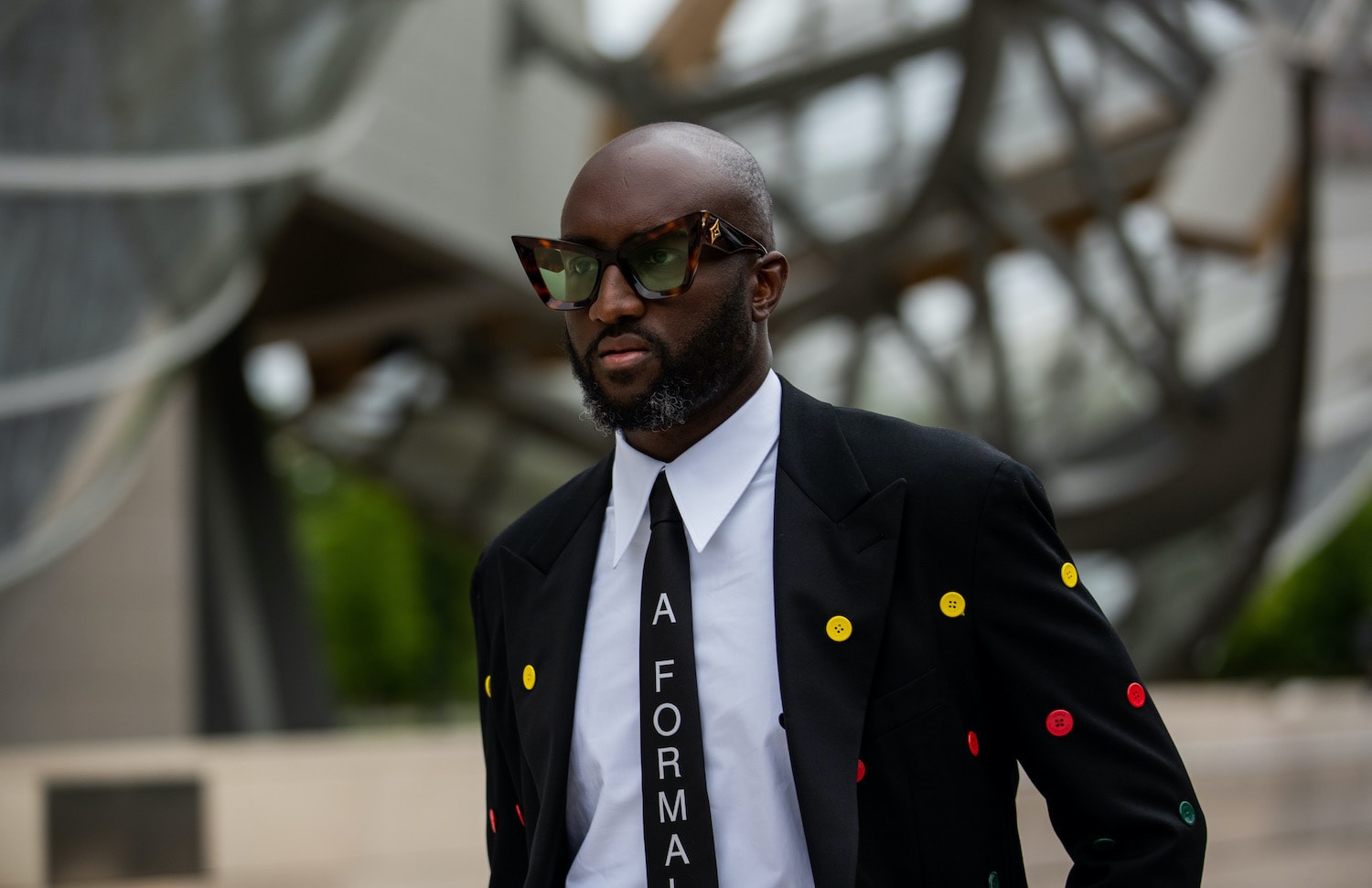
The New York Times mentioned that Virgil will take on a bigger role at LVMH overall and told the paper that he’s getting a ‘seat at the table.’ Although they didn’t clarify what his exact job title is within LVMH, how significant is that? Has there ever been a similar acquisition deal?
That’s a very tantalizing kind of statement to make that he’s going to be more involved throughout and take on a bigger role. It made me think a little bit about how Anna Wintour was made chief content adviser for all of Conde Nast globally, moving from being editor-in-chief of Vogue and being very influential to having more of an oversight role. I wonder if we just want to take out a little bit of Virgil and sprinkle him across LVMH. Maybe we want to see a little more cross-pollination, a little more commentary, and a little more insight. Not that Virgil is about to take over every brand within LVMH, but simply to have a bigger role in maybe how the company looks at the world, how the company thinks about luxury, and how the company thinks about a new generation of consumers. We don’t know what that’s going to look like yet, but it is intriguing and exciting. That speaks to how well that relationship has developed over the past several years.
And did designers usually have equity when dealing with LVMH? Is this deal unique or the first of its kind? Does it set any precedent in that realm?
I think it’s typical that when you are selling your brand to a company, you will maintain some equity. The idea that the deals that are made between your brand and others, right? The licensing out of your brand name is also something in which a designer, if there’s any ownership at all, would typically maintain equity. I think the difference here is that when LVMH acquires, a Galliano, a Marc Jacobs, or a Donna Karan, they’re thinking of developing that brand. But since Off-White has always grown through collaborations, we’re going to see a different kind of growth. It’s growth of Off-White, but it’s also growth of Off-White in collaboration with others. So that’s where the equity becomes capillary and Virgil can reach further and further, via those licenses, inside and outside of LVMH. So that’s what’s exciting and different. It’s just a different kind of brand and therefor it will experience a different kind of growth. It means that there aren’t as many natural limits of the growth of Off-White as there would be for the growth of an eponymous designer brand that was focused on internal development as opposed to external collabs.
Why do you think LV didn’t give him a board seat?
I don’t know if that was ever on the table. It’s an interesting question because one might be thinking of Kanye West saying he wanted a seat at Gap. But looking at the LVMH board, it’s still very much a family company. So I don’t know if that was something that was ever even considered, or could happen. It’s a young, family owned company, even though Louis Vuitton and many of the brands within LVMH have been around for a long time. There’s still an individual who pulled that group together, Mr. Arnault, who is still a living individual and has his family members involved in management. So it’s still a relatively young family group. So I’m not sure that opening up a board like that is something that we would expect the way we might, if it was a different kind of public company. I think that it’s already a huge step that they have invested in an American rather than a European brand. Now they’ve invested in other American brands before. But they’ve invested in an American brand rather than a traditional European brand in a big way. And they are trusting someone with a very different background who is not French, Italian, or European at all, in fact. But a Ghanaian-American who is a different kind of individual with a different design perspective and a different background into the heart of LVMH. And then that in itself is a huge step. So when we say he’s got a seat at the table, it doesn’t have to be the table in the boardroom to have a major impact, creatively and financially, on the business side.

